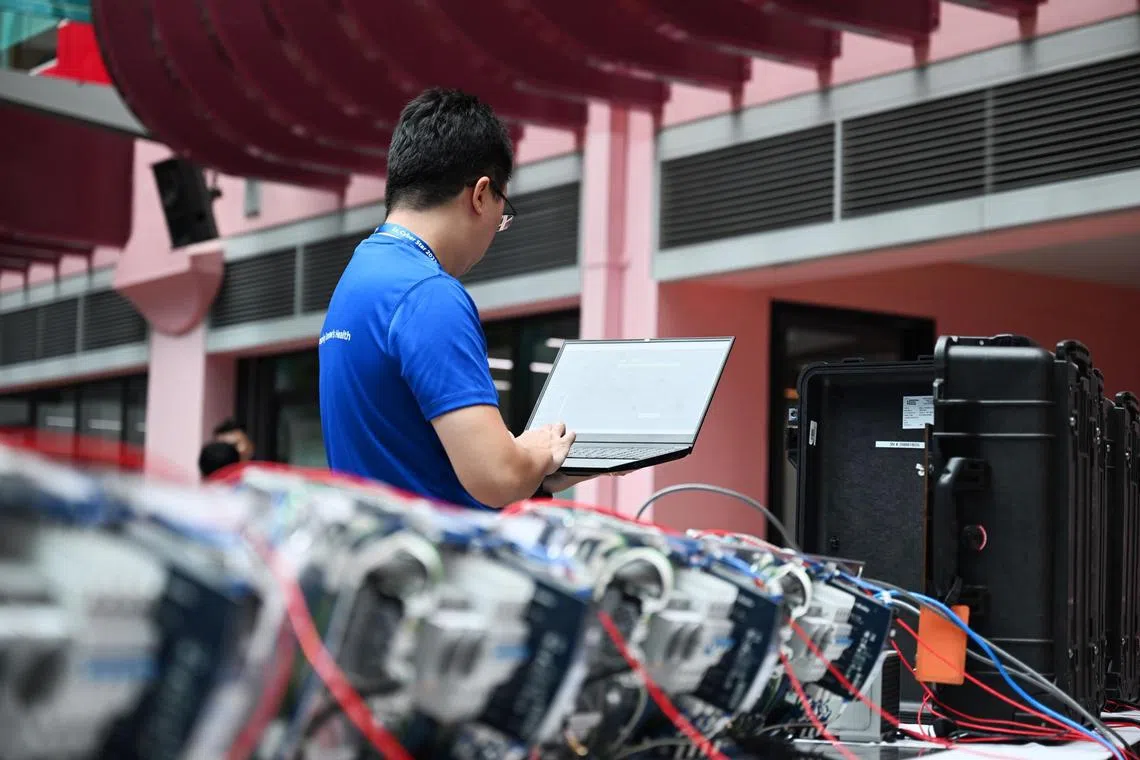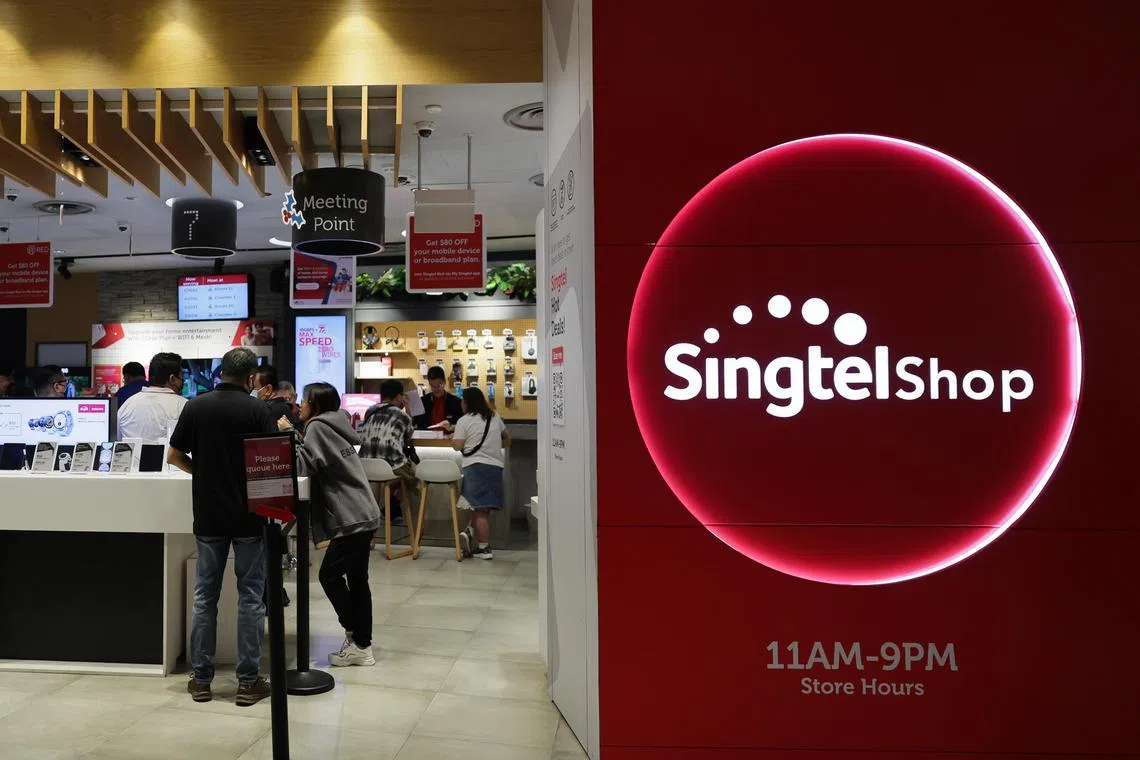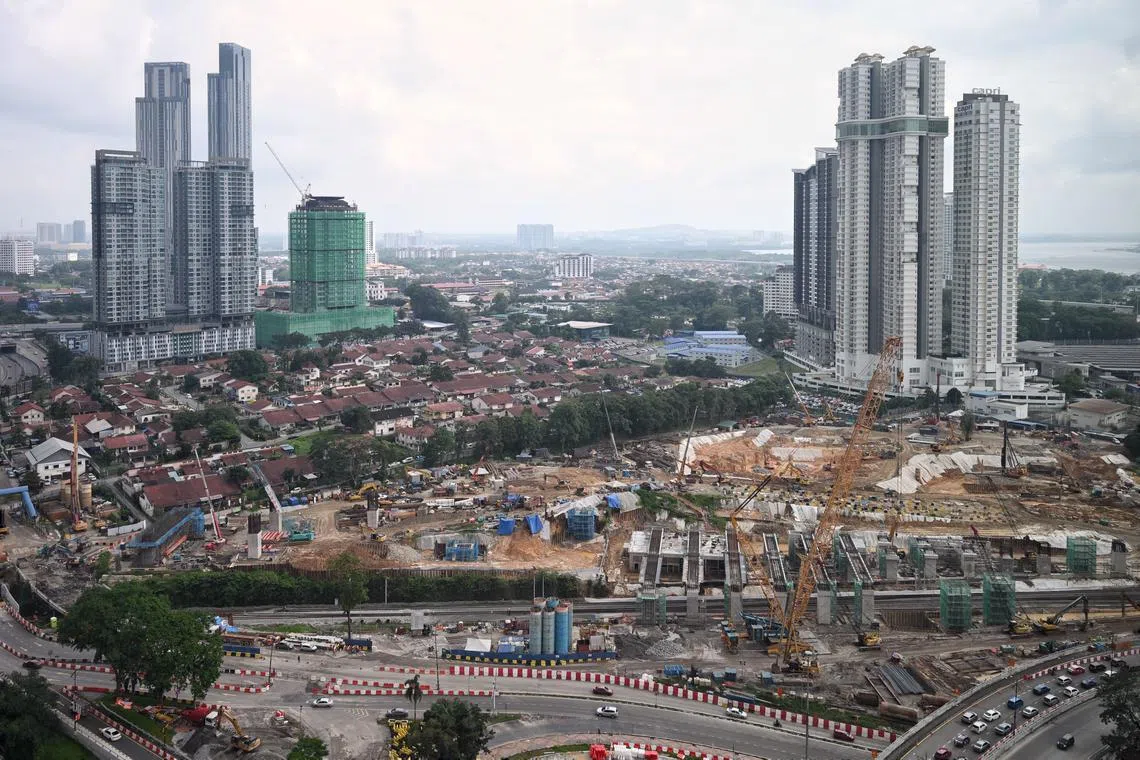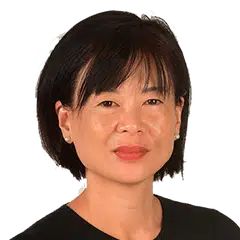5 tech trends for Singapore enterprises in 2025
Singapore’s cyber frameworks and practices will become global gold standards, cyber-security leaders will scramble for talent, and chief information officers (CIOs) will find new love in agentic systems.
Sign up now: Get ST's newsletters delivered to your inbox

Salesforce CEO Marc Benioff at the software company's Dreamforce conference in 2024.
PHOTO: SALESFORCE
1. CIOs turn their attention to agentic systems
Autonomous artificial intelligence (AI) agents will start appearing in workflows, surpassing their predecessors, generative AI and chatbots.
These systems will operate without constant human prompting, collaborating with other agents to complete tasks while learning and making real-time decisions.
At its recent 2025 tech trends forecast session, consultancy firm Forrester’s senior research director, Mr Fred Giron, provided an example: “They are building AI agents that can get onto calls and have interactions with humans who haven’t paid their credit card bills, and try and convince them to pay up. Completely different ball game.
“This is probably the 1 per cent of the most difficult use cases out there, but these kinds of use cases are coming.”
Tech firms such as Microsoft, Google, Salesforce and SAP have upgraded their software with these agents to help clients address talent shortages, boost productivity and enhance sales and customer services.
However, only the earliest adopters might reap value in 2025, noted tech policy consultant Bensen Koh. Most companies will likely still be laying the groundwork. This might include a data collection and management system that interfaces well with the new AI solutions, and a strategy to integrate agentic AI, Mr Koh said.
Firms will also need oversight mechanisms to deploy these independent bot agents responsibly, and to explain changes in management plans to employees and stakeholders, he added.

Tests being performed during a Cyber Security Agency cyber-crisis exercise.
ST PHOTO: AZMI ATHNI
2. Wanted: More cyber-security experts
Companies will spend more to guard against cyber attacks targeting not only their networks, but also their suppliers’.
At the same time, there will not be enough cyber-security talent.
Cyber-security roles made up three of 13 infocomm technology job types on the Ministry of Manpower’s Shortage Occupation List released in November, indicating official recognition of the need to import foreign experts in the field to meet businesses’ demand.
The Cyber Security Agency has also started a study on specifying minimal skills required of cyber-security personnel, which might further shrink the talent pool.
Mr Dave Gurbani, CEO of cyber-security firm Cyber Safe, believes the impending end of support for Windows 10 and the passing of the Health Information Bill in 2025 will further squeeze cyber-security teams.
After Oct 14, 2025, Microsoft will no longer provide free software updates, technical support or security fixes for Windows 10, leaving users with the software vulnerable to attacks.
The new health Bill requires healthcare providers to migrate data to a national electronic health repository, and comply with data security and protection requirements.
Mr Gurbani is training his staff in wider skills, and counting on his firm’s “Ciso-in-a-box” – literally a black lunch box-sized container – to simplify cyber-security implementation. Ciso is an acronym for chief information security officer.
Plug it in, and the box loaded with software does its magic by automating key processes, making it easier for less experienced workers to learn, he said.
3. In demand: Workers with AI skills
In December, job portal Indeed reported 4.6 times more generative AI-related job postings in the 12 months to September, compared with the 12 months before.
Singapore came in highest for the number of those postings, topping eight other developed economies covered in the report – Ireland, Spain, Canada, Britain, the US, Germany, Australia and France.
AI skills were demanded not only of seekers of jobs in data analytics, but also of candidates in architecture and medical information.
Mr Callam Pickering, Indeed’s economist for the Asia-Pacific, said the trend shows job seekers needing to learn to use AI within their industries.
“Demand for generative AI skills will surely exceed supply, particularly given that so many of these skills are new and emerging, and those businesses that can successfully reskill and upskill their staff will find themselves at an advantage,” he added.
4. Going global: Singapore tech practices and standards
Singapore’s cyber-security and AI governance and practices are getting noticed, and will increasingly be recognised and adopted internationally.
Mr Laurence Liew, director of national AI programme AI Singapore, said: “Even as a small country, Singapore and AI Singapore have made our mark as thought leaders for our various AI initiatives.”
Penang, Serbia, Isle of Man, Egypt, Rwanda and Abu Dhabi are among the places that are studying Singapore’s AI development experience, he said.
He is hoping that AI Singapore’s apprenticeship programme will have 500 trainees – a quarter of the cohort in the programme – graduating as full-fledged AI engineers and going on to shape the global development of the nascent technology.
Mr Greg Francis, CEO of tech regulation consultancy Access Partnership, said speed, effective stakeholder management and the Government’s willingness to move quickly on issues made Singapore a leader in the fast-rising AI regulatory domain.
He noted: “I would not be surprised if Singapore’s thinking frameworks and standards became more widely adopted.
“They might be called something else in another country. But ultimately, it’s that kind of movement that makes companies come and invest here and experiment here and collaborate with the Government.”
“Audacity succeeds,” he added. “It always does, and that’s one area where Singapore really is audacious and fast-moving.”
5. Local telcos shape-shift to stay mobile

More collaboration between telcos and fintech firms and cloud service players is expected.
PHOTO: ST FILE
As 5G networks are software-based, mobile operators will work more closely with technology partners and software developers, who might historically be competitors, said GSMA, an organisation that represents the mobile technology industry.
Mr Julian Gorman, GSMA’s head of the Asia-Pacific, expects more collaboration between telcos and fintech firms, as well as cloud service players.
He said: “We’re seeing companies like Singtel work with the wider tech ecosystem to develop new services like SingVerify to tackle online fraud.
“Industry consolidation is also possible in some markets across the region – as we’re seeing with XL Axiata and Smartfren in Indonesia – this is due to the huge investment costs involved in rolling out 5G networks at scale.”
Consultancy firm BMI believes telcos will pay greater attention to the Johor-Singapore Special Economic Zone,

Consultancy firm BMI believes telcos will pay greater attention to the Johor-Singapore Special Economic Zone, which will play a rising critical role in meeting the region’s computing infrastructure needs.
PHOTO: ST FILE
BMI’s digital infrastructure analyst, Mr Niccolo Lombatti, said the economic zone’s 3,500 sq km surface area will facilitate high-density data centre deployments, besides offering appealing investment incentives.
Singapore telcos are already in consortia that offer computing services for businesses to access high-performance Graphics Processing Units-as-a-Service (GPUaaS) via the cloud, so that these firms need not invest in expensive GPUs for high-performance computing themselves, he said.
They are also offering data centre platforms with AI-ready and flexible compute resources.
“The opportunity for some Singapore-based telcos here is twofold: Servicing digital transformation needs of both stakeholders in Singapore and neighbouring markets, while also having the opportunity to bundle additional enterprise services such as network connectivity to GPUaaS,” Mr Lombatti said.



